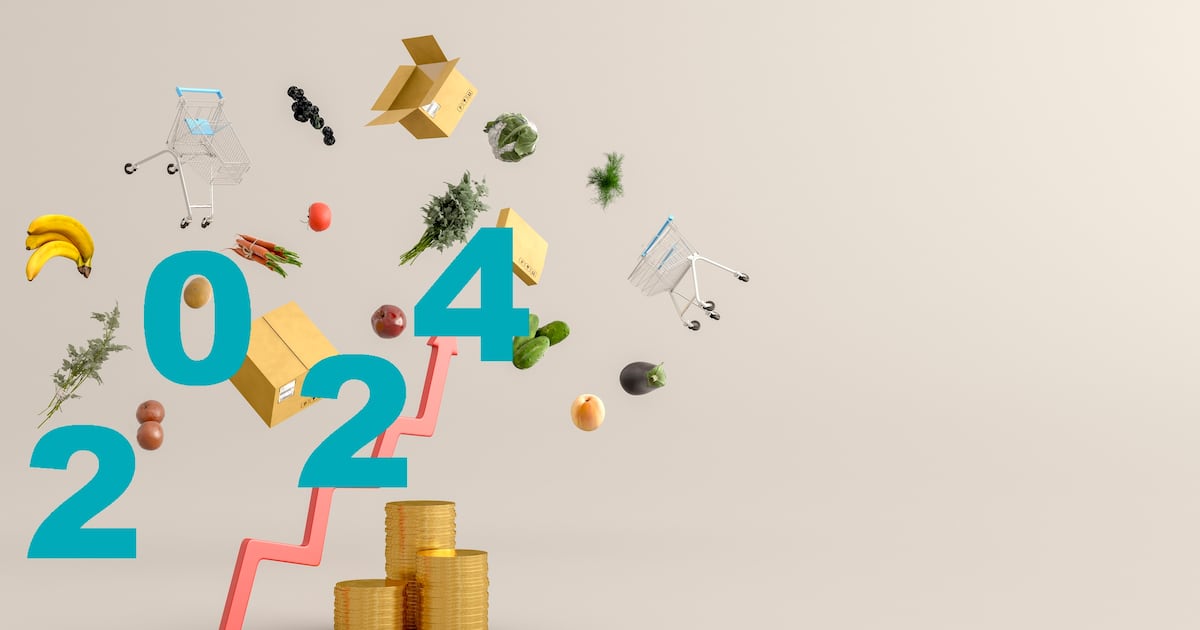From a new boss at Nestlé, to Unilever’s decision to ditch (or separate) its ice cream business, and an EUDR delay rollercoaster filled with twists and turns, it’s been an eventful year.
The sector has also faced a slew of criticism and accusations, despite its continued effort and investment to ensure safe, nutritious and enjoyable food for consumers on various budgets.
Read more:
And then there’s plant-based meat’s return, GLP-1’s entry to the market, McDonald’s vegan nuggets and the increasing strength of function as a trend within food and drink.
As the year runs out, FoodNavigator reviews some of the most prominent stories of the year and their impact on the sector.
Biggest U-turn: EUDR
The European Deforestation Regulation caused panic and outrage as businesses and organisations – ready or not – battled to see it enforced or delayed.

Organisations representing both large- and small-scale commodity businesses sounded the alarm that disaster awaited food and drink businesses globally due to a lack of preparedness, poor planning and woolly regulation guidance from the EU.
The European Commission eventually proposed a delay in early October, which was then passed by the European Parliament, but not before right-wing leaning political parties attempted to dilute the regulation with amendments.
However, it all settled on 3 December when a ‘trilogue’ between the European Council, Commission and Parliament agreed the EUDR would go ahead unchanged, but with a 12 month delay.
Promotion of the year: Nestlé CEO Laurent Freixe
A shock announcement in August revealed then Nestlé CEO Mark Schneider would be stepping down from his role as CEO after eight years at the top, to be replaced by company veteran of 38 years, Laurent Freixe.

Long-serving Freixe was apparently a popular figure in Nestlé‘s headquarters, having joined in 1986. He’d held roles as Nestlé Zone Europe CEO and had previously pitched himself for the position of CEO in 2016, but was unsuccessful.
Some eyebrows were raised at his appointment, him having come from a marketing background. However, those eyebrows were pushed quickly back down as sector commentators pointed out other FMCG businesses CEOs also had leaders with marketing backgrounds – Danone and Lindt as examples.
As with many blue chip, big food businesses now, Freixe set out his intent to focus on Nestlé‘s core brands and business activities during his tenure.
He’d invest in organic growth, utilise M&A only when needed and seek to drive the top line by growing market share.
Food and drink villain of 2024: UPFs

It turns out 2023 was just a warmup year for the ultra-processed food critics. Because this year, particularly this month, conversation about UPFs and “how bad they are for health”, heated up.
Several studies, a WHO statement and a series of books, documentaries and programmes have all hit out at UPFs – though a true definition of what one is remains to be discovered.
Though it was this month, with the launch of legal proceedings against big food in the US, when it took a more serious turn.
A consumer blames makers of UPFs for his ill-health and hired lawyers to sue the big businesses that made his vices.
According to the lawsuit, food companies actively create products that are addictive and have employed dubious tactics to make consumers addicted and repeat their purchases.
New kid on the block: GLP-1
It’s the drug that’s swept several continents by storm and is quickly gaining volume in Europe too. That’s GLP-1 drugs like Ozempic.

Promised and proven to reduce appetites and alter consumers’ perception of food and drink, governments worldwide are pinning their hopes on this wonder drug to help reduce rising obesity levels among their populations.
It is set to shake the global food and drink industry as manufacturers are already turning to the drawing board to understand the business impact and opportunities of GLP-1 drugs now and down the line.
One area that could be explored is foods with added nutrition and fortification to help ensure consumers are taking on the essential nutrients they need while eating less.
This year’s biggest pain: commodity price hikes

Commodities were the hot topic of 2024, with severe inflation leaving few, if any, sectors untainted by the dizzyingly high costs many ingredients reached this year.
Cocoa though was the commodity of the hour. Its price shot up and down in the space of months, leaving a bitter taste in the mouths of many confectionery businesses. Cocoa’s cost per tonne rose to $12,000 in April, before plummeting to $7,000 just a month later.
The cut gave the likes of Mondelēz license to feel optimistic, though happy thoughts were short-lived as analysts soon predicted a fresh round of price rises.
Trend of the year: functional food
If there are three words that can guarantee consumer attention, they would be: function, function and function…

Functionality, pipped to be a top trend for several years now, has become bigger than ever and is predicted to grow further still.
Join us: FoodNavigator’s free, digital Positive Nutrition event
Whether in food or drinks, consumers want what they’re consuming to make a positive impact on their lives – feeling fuller for longer, hydrating more quickly or maintaining concentration and motivation.
Consumers take their health and wellbeing more seriously now than five years ago and are turning to what they eat and drink as a solution.
Shock announcement: Unilever ditches ice cream
In spring, Unilever boss Hein Schumacher announced the business would separate its ice cream business from the main company, where it would focus on 30 ‘power brands’.

It was a shock. Unilever owns some of the world’s largest ice cream brands in supermarket freezers, including Ben & Jerry’s, Wall’s and Magnum.
The division, in short, wasn’t providing the returns Unilever would be looking to achieve in Schumacher’s new strategy, and nor would it in the future.
However, the division did start to track up over the course of the year and provide a positive return in Unilever’s third-quarter trading update. It was also the intention of Schumacher to cut ties with the division and sell it, however, this became a cumbersome process and last month it was announced Unilever would operate ice cream as a separate business.
Also read → Unilever to ditch €1bn of food brands and X4 innovation
Comeback of the year: plant-based

Last year plant-based began to have a rough time of it, with what were thought to be well established brands dying and global sales collapsing.
However, the tides have turned and those businesses dedicated to the market have not only remained, but remain strong and are starting to see growth.
Sales in Europe are on the rise again and businesses like Redefine Meat have started to double sales in parts of their business.
Watch: what’s next for plant-based meat?
Market experts and those working closely in the sector were relaxed, on reflection, about the downturn in plant-based. Consolidation was to be expected, its the way a lot of markets – especially establishing ones – tend to go, they told FoodNavigator.
But now green shoots are starting to emerge, what’s next for the category that many turned their backs on in 2024?
Late to the party: McDonald’s France and its vegan chicken nugget

McDonald’s is rarely late to the party – not even fashionably. But this year, McDonald’s France was to the vegan chicken nugget party.
It was in October the chain – operating in the largest marker outside the US – announced its partnership with Beyond Meat to launch its Veggie McPlant Nuggets.
Over 1,500 outlets in France will offer four, six, nine or 10-piece vegan nugget servings, as is the case with its conventional nuggets.
While the chain has flirted with veggie launches in the past, the vegan nuggets will be a permanent addition to McDonald’s France’s menu, as the territory seeks to build on changing diets in the country.
